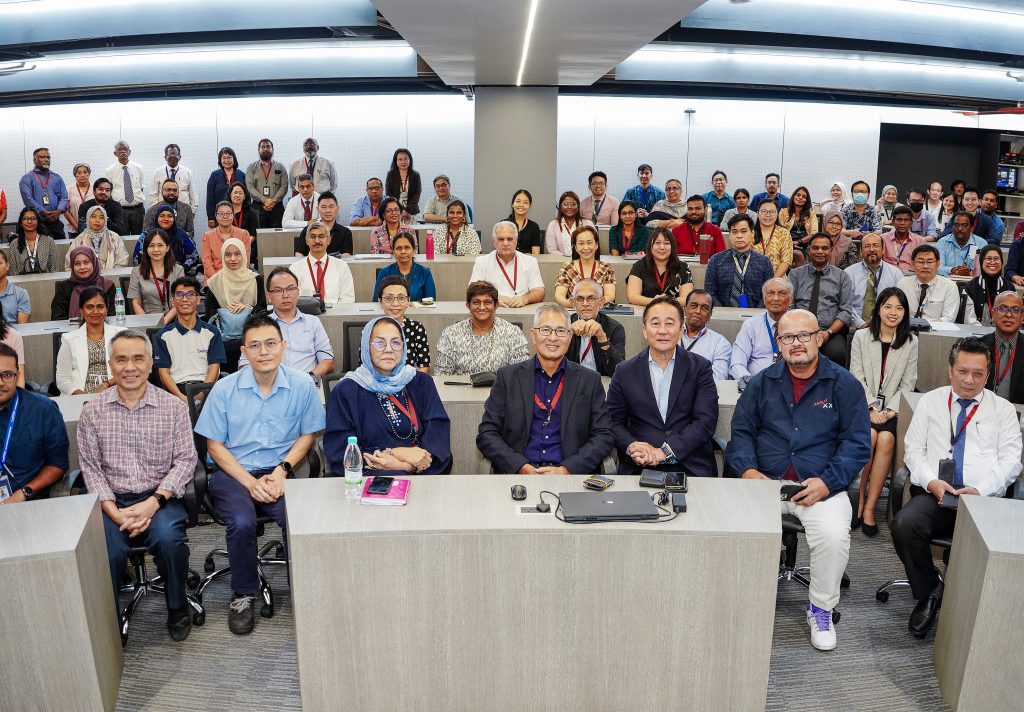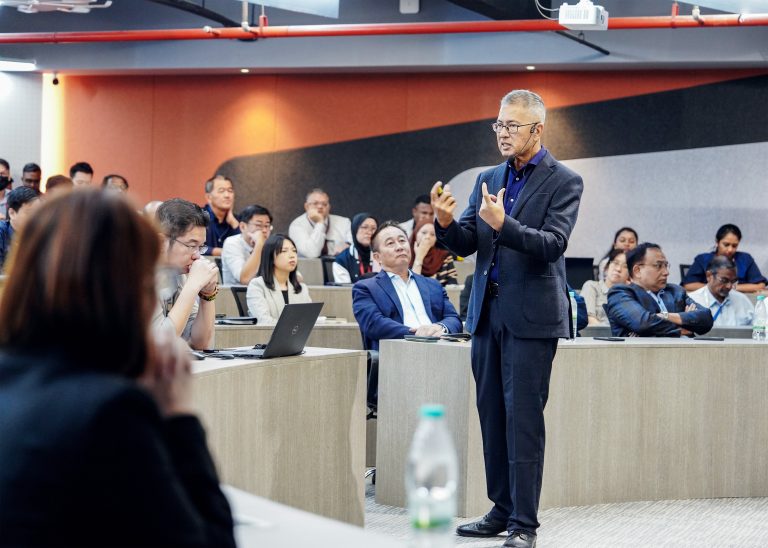With each passing day, generative AI continues to reshape societal norms and push the boundaries of what’s possible—impacting every sector without exception. AI’s immense transformational power underscores the urgent need for clear guardrails, which can only be established through interdisciplinary dialogue.
As a centre of education, research, and community engagement, QIU is committed to fostering responsible innovation in an AI-driven future. This pressing topic was the focus of a thought-provoking talk titled “The Ethical Use & Legal Limits of Generative AI: Where Do We Draw the Line?” delivered by Mr Zaheer Merchant, Director for Corporate & Legal Affairs and Director for Education at the QI Group of Companies, and a member of the QIU Council.
Hosted at The Curve as part of National Training Week, the talk was organised in collaboration with the Malaysian International Chamber of Commerce and Industry (MICCI) Perak. It was one in a series of university-led discussions exploring the major issues shaping our world.
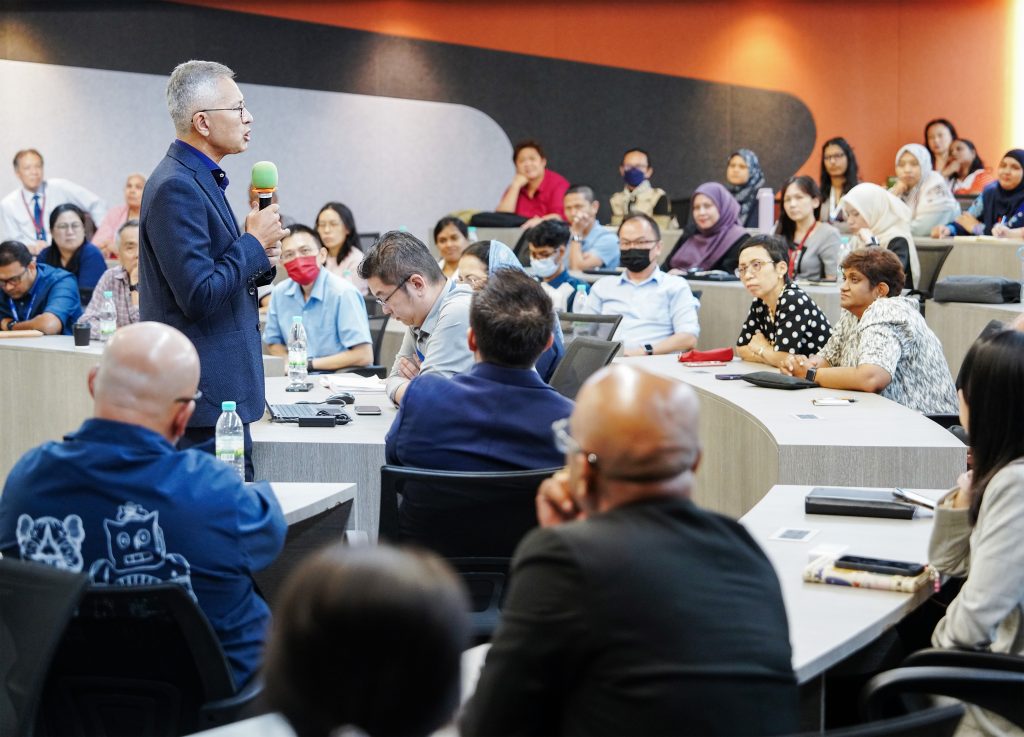

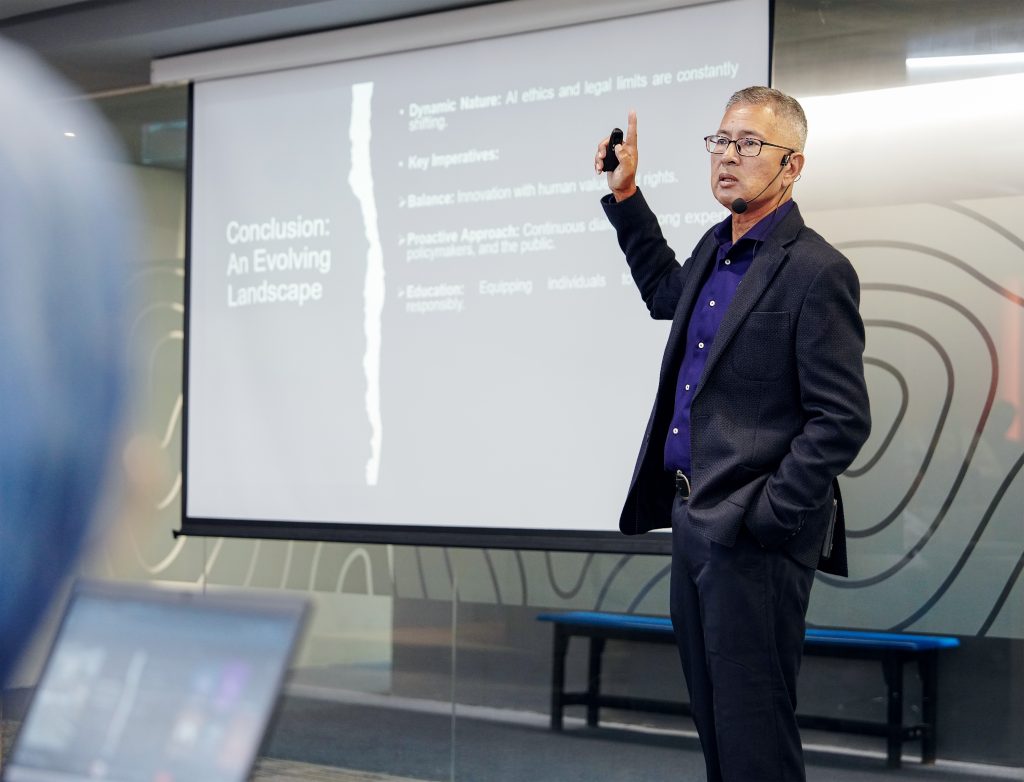

The session attracted a diverse audience, including legal professionals, industry experts from the manufacturing and services sectors, representatives from MICCI Perak, and academics from Politeknik Ungku Omar and QIU. We also welcomed the QI Group’s Group Managing Director, Mr Kuna Senathirajah and entertainment icon Mr Harith Iskander, who is also an Adjunct Professor of Practice at our School of Communication.
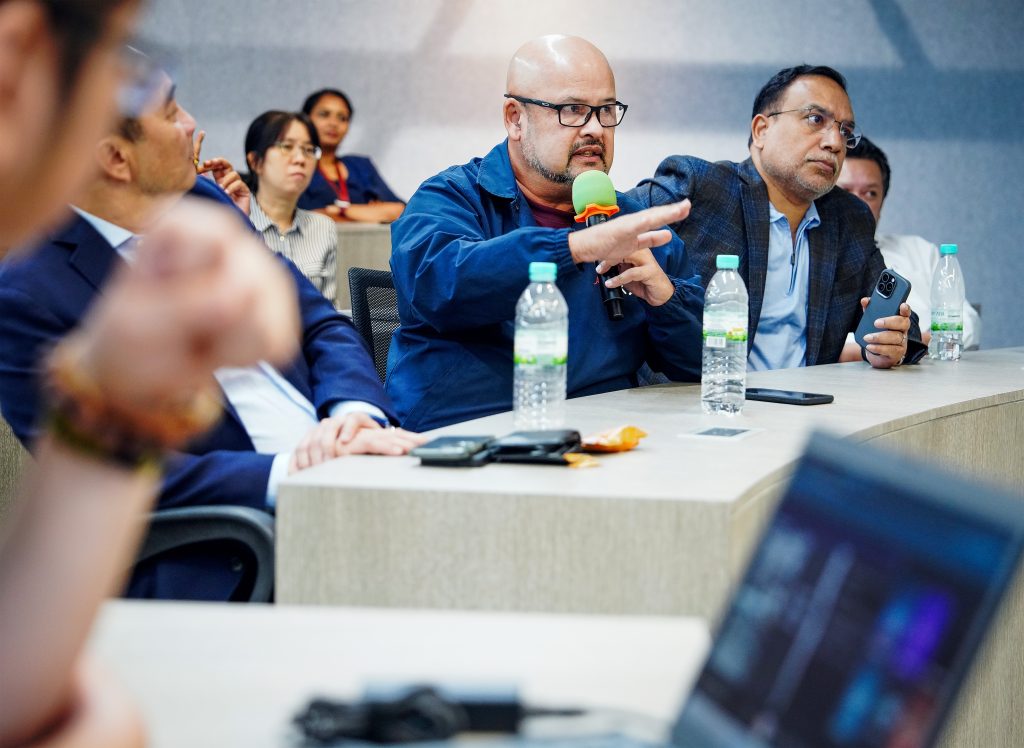

The breadth of participation reflected the far-reaching implications of the topic and the growing need for cross-sector dialogue on AI governance.
In his presentation, Mr Merchant delved into the ethical challenges posed by the rapid rise of tools like ChatGPT, DeepSeek, and other AI technologies. He highlighted key concerns surrounding originality, academic integrity, data privacy, security, and intellectual property infringements, particularly within academic and corporate landscapes.
Digging further, Mr Merchant raised ‘darker’ issues, which swirled around discriminatory bias reflected in AI models, the lack of accountability, as well as misinformation and hyper-realistic deepfakes.
“It’s not a question of whether you use AI, but how much AI you use,” Mr Merchant remarked. “But who is responsible when AI makes a mistake? This is a murky line.”
“AI ethics and legal limits are constantly changing, and it really comes down to the human aspect.. The goal must be to ensure that generative AI serves the best interests of humanity.
“It is imperative that we balance innovation with human values, and proactively conduct dialogues between experts, policymakers and the public. We must educate society to navigate AI responsibly.”
The session concluded with an engaging Q&A segment, where guests exchanged perspectives on regulatory frameworks in higher education, the implications of AI in the job market, and the ethical expectations placed on developers and users alike.
